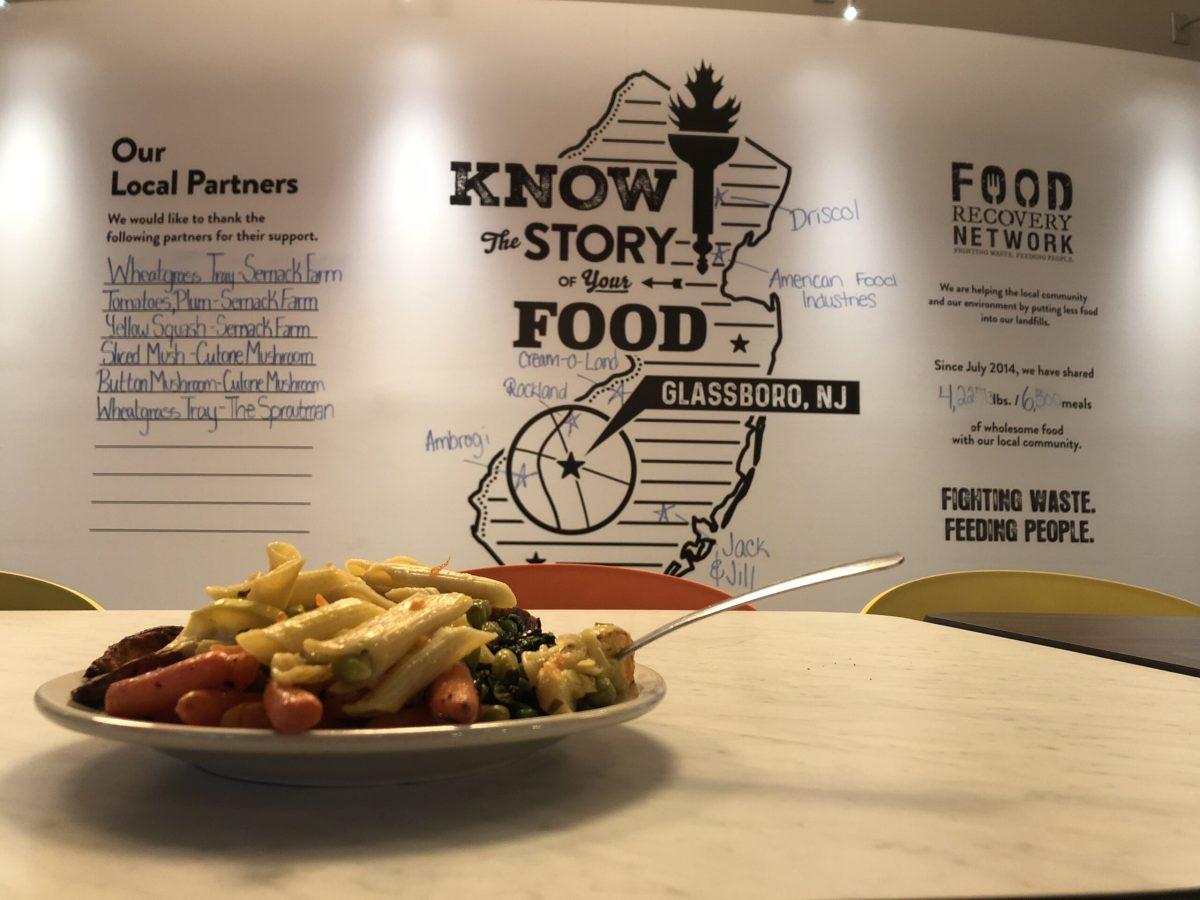Feeding one college student can be expensive, but what about 15,000?
Each day, over 500 pounds of food are cooked and prepared for the dining halls at Rowan University, but not all of it is eaten.
According to a study by the Environmental Protection Agency, 38 million tons of food is wasted each year in America. That is the combined weight of 104 Empire State buildings. While not all the food wasted in colleges is tracked, a study by NPR shows that college students account for 22 million pounds of wasted food annually.
The Food Recovery Network
Several New Jersey colleges, including Seton Hall, Stockton University and Rowan University, all recover and track their food via an online recovery network.
Together all the colleges signed up with the Food Recovery Network have recovered 4,451.18 pounds of food in 2017.
Each college records its own data as to the amount of food recovered in each chapter and marks it on the Food Recovery Network Website.
But some colleges are initiating ways to help decrease the amount of food that goes to waste.

Susan Pagano, the coordinator for the food recovery network at Monmouth University, explained the process her school uses to redistribute wasted food in the area.
“The way that food recovery happens at Monmouth is that we meet after the food service locations on campus have closed, and Gourmet Dining (our dining services) sets aside the food that we can donate,” Pagano said. “Our volunteers then package up all the food, label the containers and weigh all the items. We report those weights to FRN [Food Recovery Network] national and to Gourmet Dining.
“The food is then kept in Gourmet Dining’s refrigerators overnight, and then our volunteers pick up the food the next morning to donate to one of our partners. We deliver to Reformation Church Community Food Pantry in West Long Branch and Meal at Noon, a church, in Long Branch.”
Rowan University
Before 2015, what was left over at any of Rowan University’s food vendors was typically thrown away, but in the spring of 2014 a group of students led by Rowan student Bianca Phelps and Gardy Guiteau, director of the Office of Social Justice, Inclusion and Conflict Resolution (SJICR), started an initiative to recover the food that was still edible instead of discarding it.
The following year, those students started a chapter at Rowan University with the Food Recovery Network, which allows New Jersey Colleges to recover and track how much food is saved and distributed to other areas.
“The project originated under Students United Mentoring Services,” said senior English and education major and coordinator for the Food Recovery Network Rowan University chapter, TJ Holloway. “This project has been under the helm of the Rowan Environmental Action League.”
Since the fall 2015 semester, the Rowan University has recovered 344 pounds of food from on-campus eateries such as the Marketplace Cafeteria and Glassworks Eatery in the Holly Pointe Commons, all of them serviced by Gourmet Dining.
In order to collect food from Gourmet Dining at Rowan, participants meet at the SJICR office in Hawthorn at 4 p.m. every Friday and head over to the Marketplace and Food Court at 4:30 p.m., according to Holloway. They then donate the food from the two locations to the Wedgewood Americana, an assisted living home in Glassboro, as well as the Eleanor Corbett House, a women’s shelter in Glassboro.
“We have also donated food at the Robin’s Nest for some time but due to the lack of long-term refrigeration, the partnership ended,” Holloway said.
Gourmet Dining
Similar to other colleges with chapters in the Food Recovery Network, Rowan is also serviced by Gourmet Dining.
Other New Jersey colleges like Seton Hall, Stockton, Monmouth and others utilize Gourmet Dining for food services.
“Gourmet Dining as an organization is active with the Food Recovery Network at a number of campuses,” said resident district manager for Gourmet Dining, Elizabeth Jordan. “In regards to our participation at Rowan we have a small group of students involved in the program and recently met with some more to hopefully grow the program over the course of the spring semester.”
Holloway echoed this statement, saying he and the rest of the students working at the chapter are looking to improve the recovery network for next year.
“For the spring of 2018, there are members who are ready to expand the program and to take it to new heights,” Holloway said. “Gourmet Dining has expressed that they are open to expanding the program to three times a week and the Office of Social Justice has expressed that they are open to provide vans and drivers to make sure the food delivery goes solid.”
For comments/questions about this story, email [email protected] or tweet @TheWhitOnline.
























































































































































!["Working with [Dr. Lynch] is always a learning experience for me. She is a treasure,” said Thomas. - Staff Writer / Kacie Scibilia](https://thewhitonline.com/wp-content/uploads/2025/04/choir-1-1200x694.jpg)









































